Cool
1984: Big Brother, Big Economy, Big Happenings
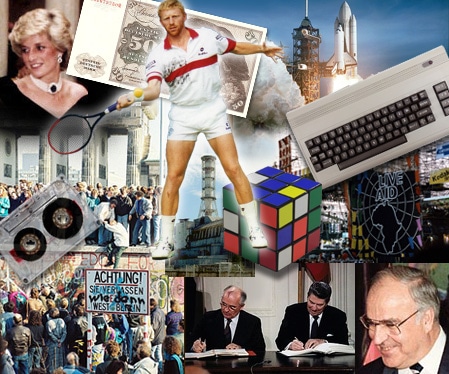
When George Orwell’s groundbreaking science fiction novel hit the market on June 8, 1949, it blew millions of American minds. Not only was it one of the most revolutionary novels of the 20th century, but it also established an expansive school of thought. Though the piece of fiction wasn’t exactly true to reality, it might pose the question, “What actually did happen in 1984?”
The economy was booming, DNA profiling was developed, and the space shuttle Discovery took its maiden flight. 1984 might not have gone down how Orwell predicted, but plenty of interesting stuff happened this year. Below we’ve compiled a list of the 25 biggest events of the year that made it so memorable.
What Happened in 1984?
1. Genetic fingerprinting/DNA profiling was developed.
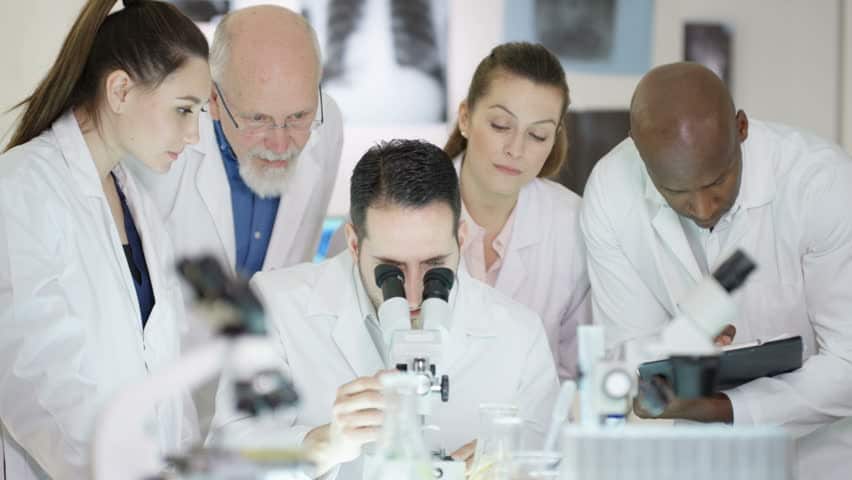
Source: shutterstock.com
Between two people, there are approximately three million different base pair DNA combinations. It was in 1984 that these microscopic differences began to be more widely used in forensic investigations to identify criminals. DNA profiling was a breakthrough for both the medical and criminal investigative communities.
2. The U.S. hosted the Summer Olympic Games in Los Angeles, California.
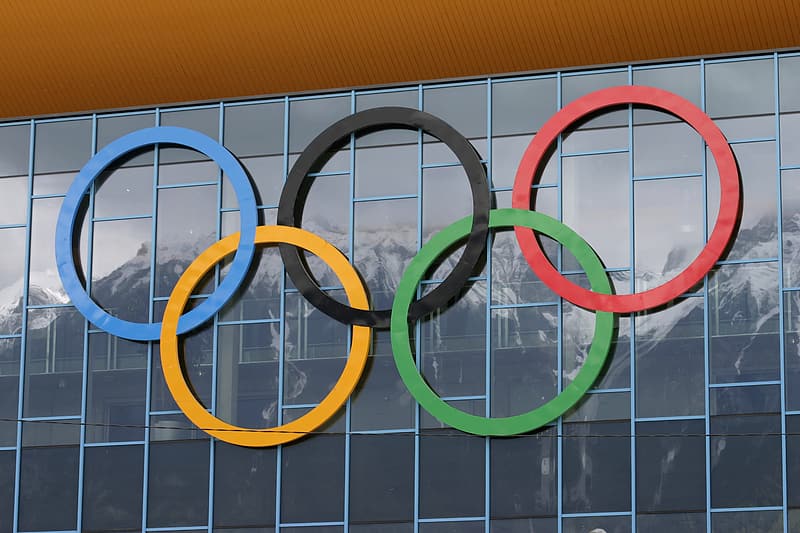
Source: pikrepo.com
Not only was this the first Olympics to incorporate women’s marathon, women’s cycling, and synchronized swimming, but it also proved to be one of the more unique games in history. With Cold War sentiments still running rampant and in response to the US’s boycott of the 1980 Moscow Olympic Games, the USSR and fourteen additional Eastern Bloc countries neglected to participate in these games. With such a lack of competition, the U.S. made out with a record 83 gold medals.
3. Hong Kong returns to China.
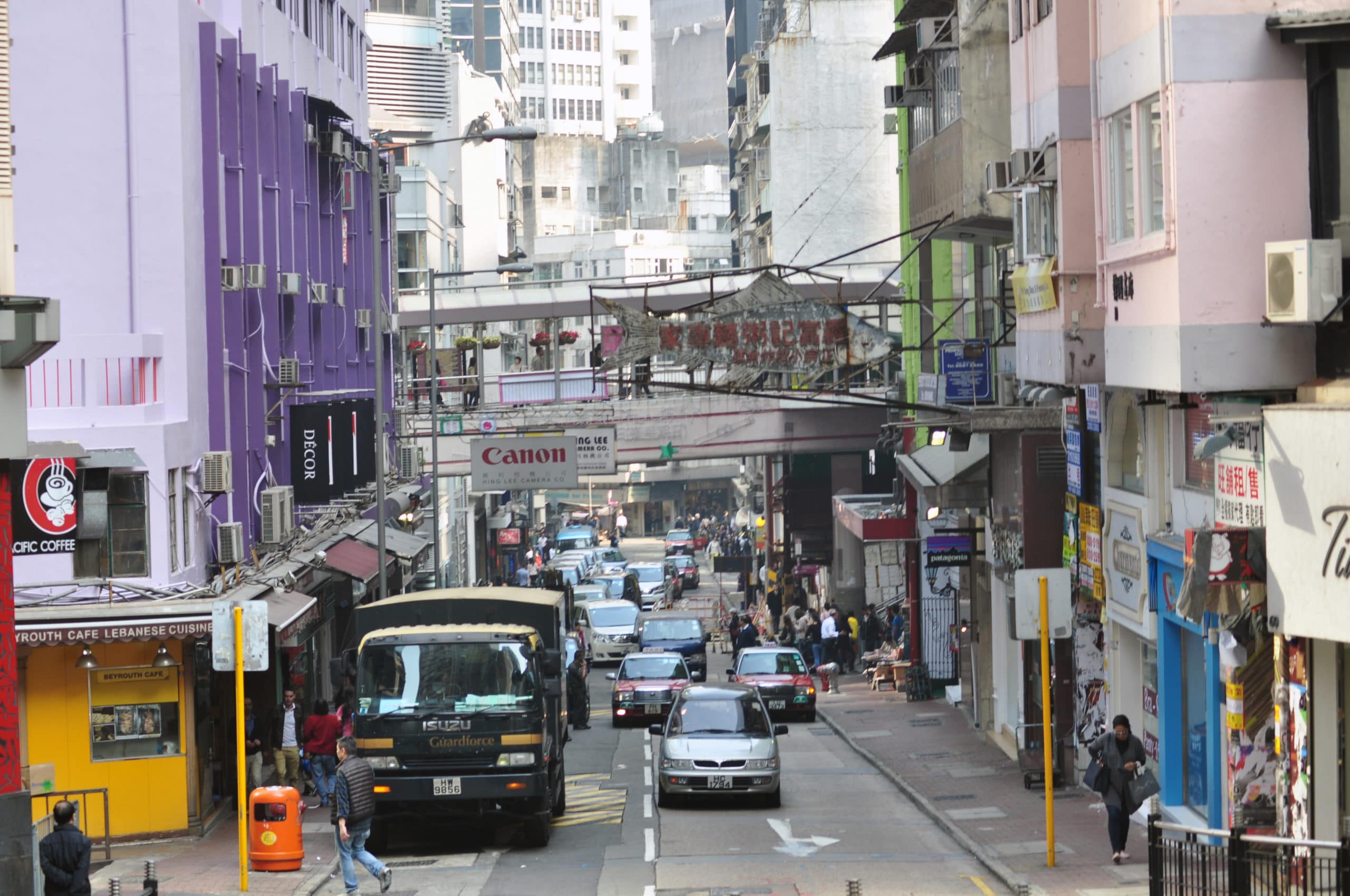
Source: commons.wikimedia.org
Since the first Opium War of 1842, Hong Kong had operated under British rule as an entity separate from the Chinese communist government. UK Prime Minister Margaret Thatcher and Chinese Premier Zhao Ziyang came to the Sino-British Joint Declaration on December 19, 1984, officially designating 1997 as the year Hong Kong would retain its capitalist, democratic systems while becoming a part of the Chinese government.
4. The first MTV Video Music Awards aired.
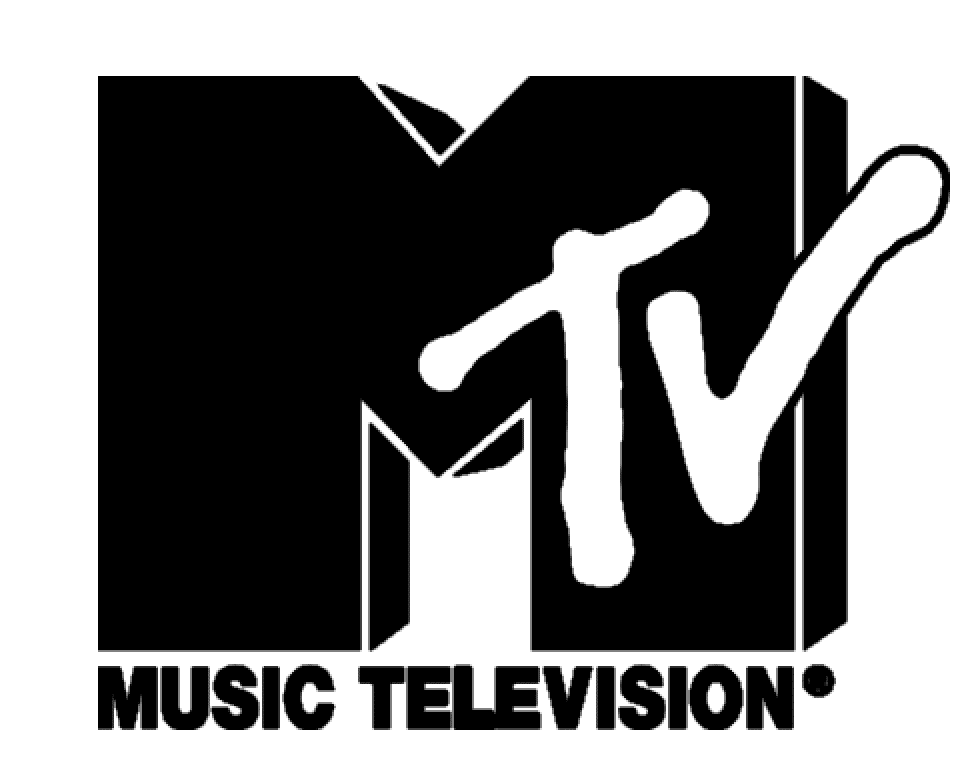
Source: commons.wikimedia.org
Back when music videos were just beginning to make their mark, MTV was the channel you wanted to be on. The first-ever Video Music Awards ceremony aired September 14, 1984, and featured iconic performances by Madonna, David Bowie, and Ray Parker, Jr.
5. Indira Gandhi was assassinated.
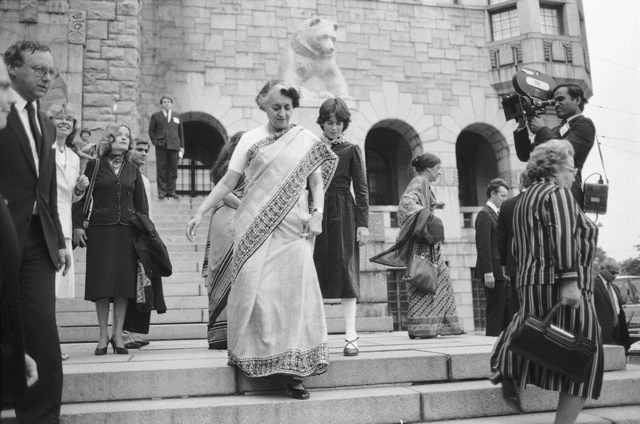
Source: commons.wikimedia.org
The Prime Minister of India led a successful campaign during her early years in the position (1966-76). After a few political losses and a shift in her party platform, she won the spot again in 1980 to serve for a fourth term. After a Sikh separatist movement took over the Holy Golden Temple in Amristar in 1984 and hundreds were killed, two of Gandhi’s bodyguards, both Sikh extremists, assassinated her.
6. The Apple Macintosh Super Bowl commercial aired.
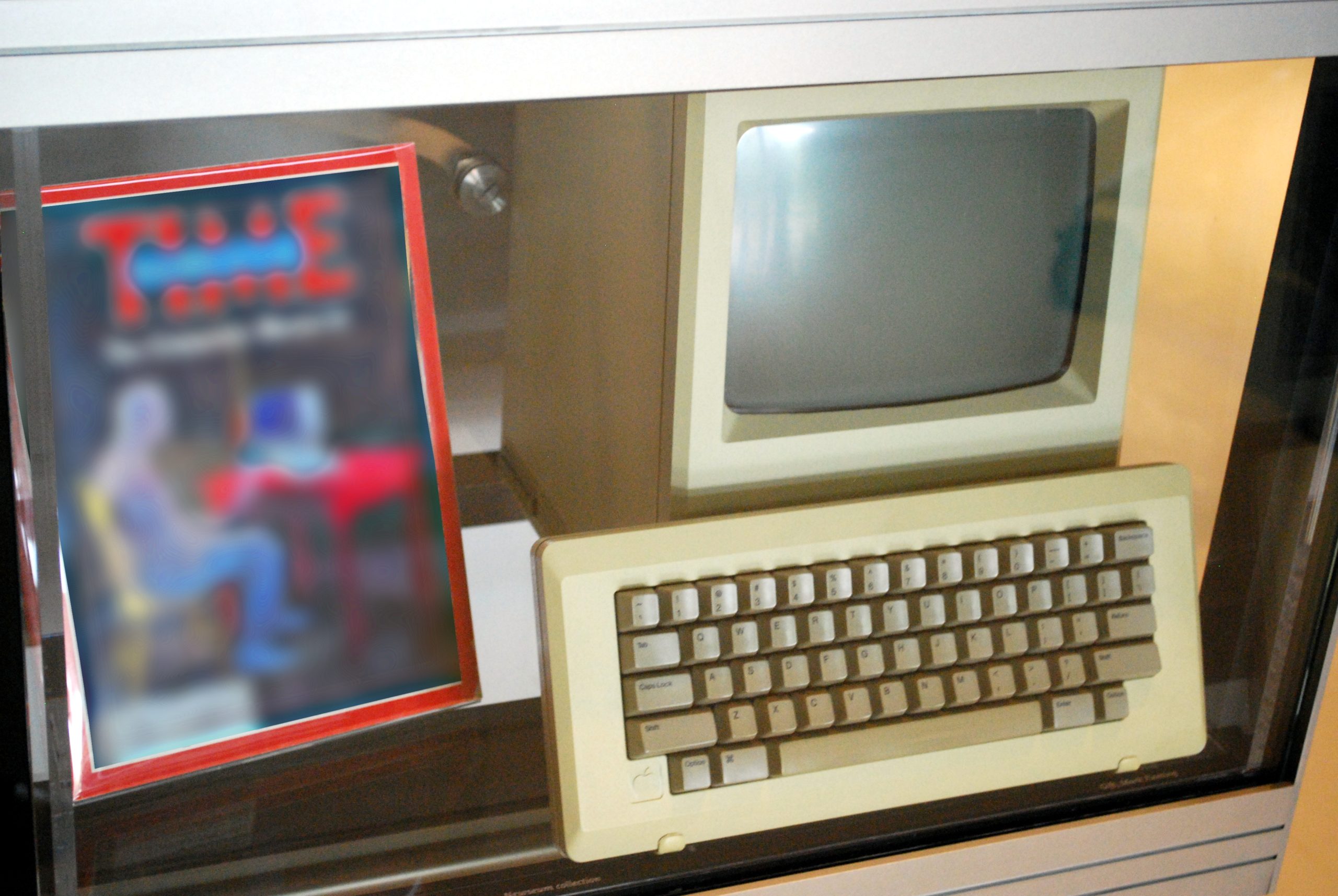
Source: commons.wikimedia.org
Before Super Bowl commercials had become an entire industry in their own right, Apple set the bar when it premiered its Macintosh ad on January 22, 1984. The popular tech corporation, manned by Steve Jobs at the time, spent over $900,000 (the modern equivalent of $2.2 million) on the production of the commercial, making it one of the most expensive advertisements ever produced. Pictured above is the Macintosh computer itself. Was $900,000 worth the hype? Maybe, maybe not… we’ll leave it to you to decide.
7. Miners in the UK went on strike.
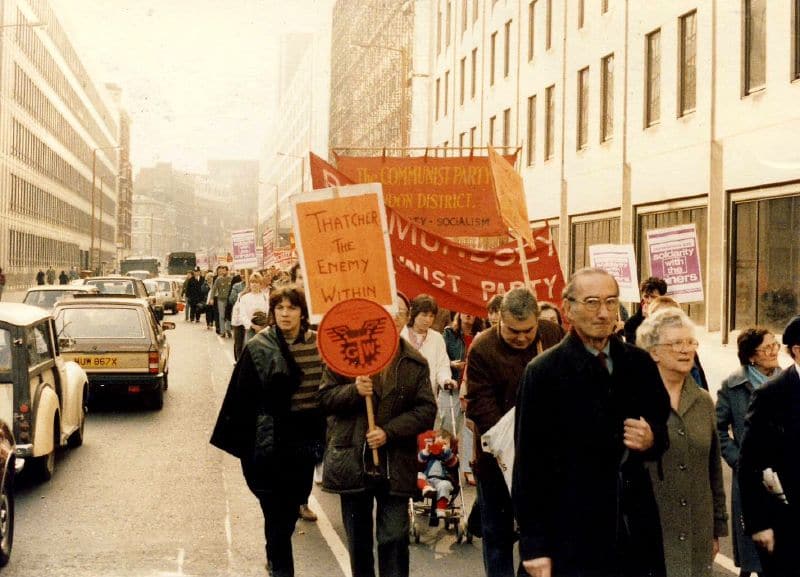
Source: commons.wikimedia.org
This might sound like something pretty old-fashioned, but believe it or not, miners were still going on strike when you or your parents were teenagers. The National Coal Board, an agency of Margaret Thatcher’s administration, was ready to cut around 20,000 jobs and close down 20 different collieries. Over 150,000 members of the National Mineworkers Union went on strike from 1984 to 1985 and brought national, economic, and industrial systems to a near standstill.
8. Band Aid raised awareness about childhood hunger in Ethiopia with a Christmas song.
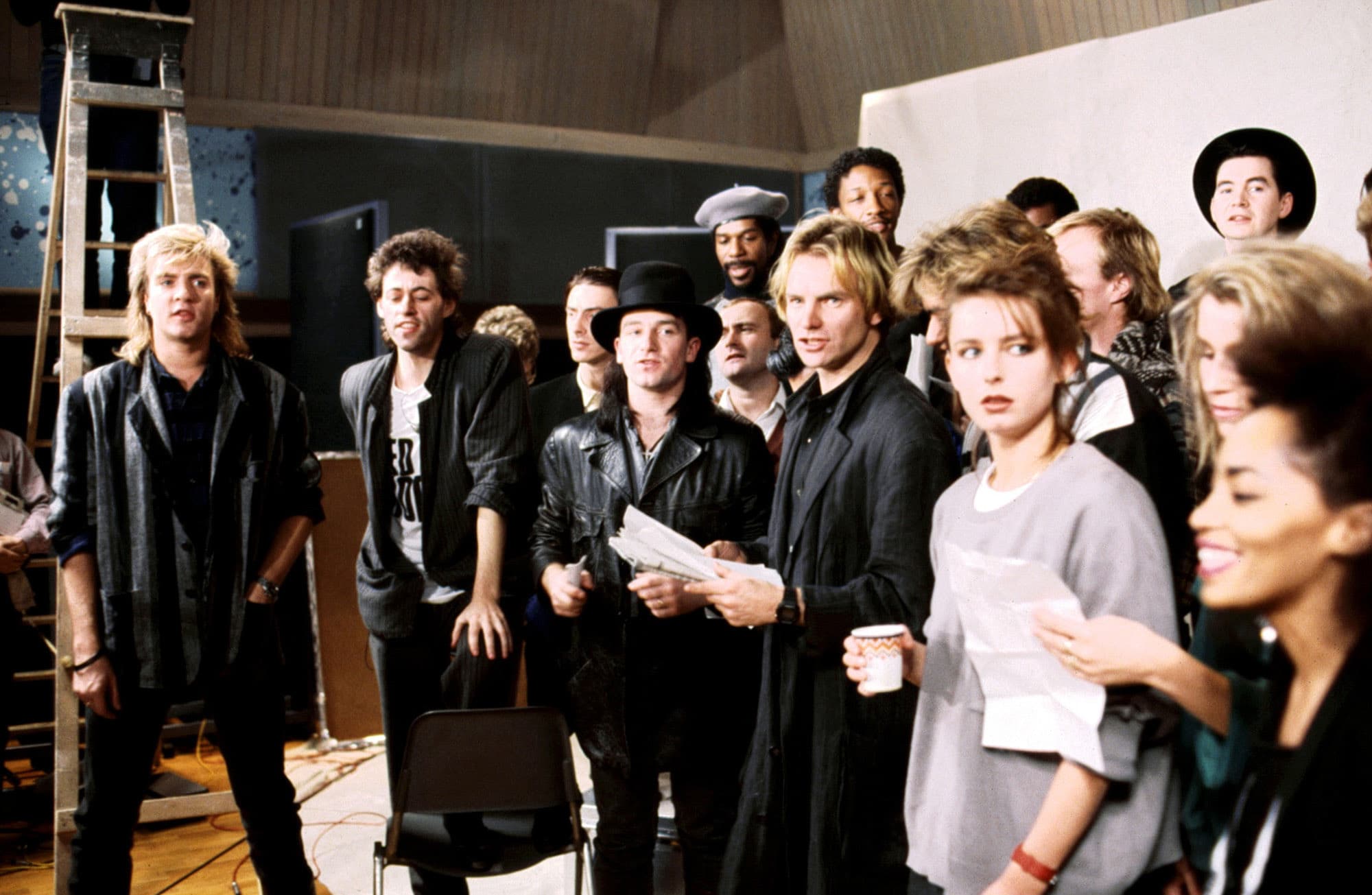
Source: voicesfilm.com
A month before the Christmas of 1984, musician Bob Geldorf recruited top artists from Britain and Ireland to release a single that would raise awareness for childhood hunger in Ethiopia. The song sold a million copies the week of its release and hit the 3 million mark before the year was over.
9. English pound notes were taken out of circulation.
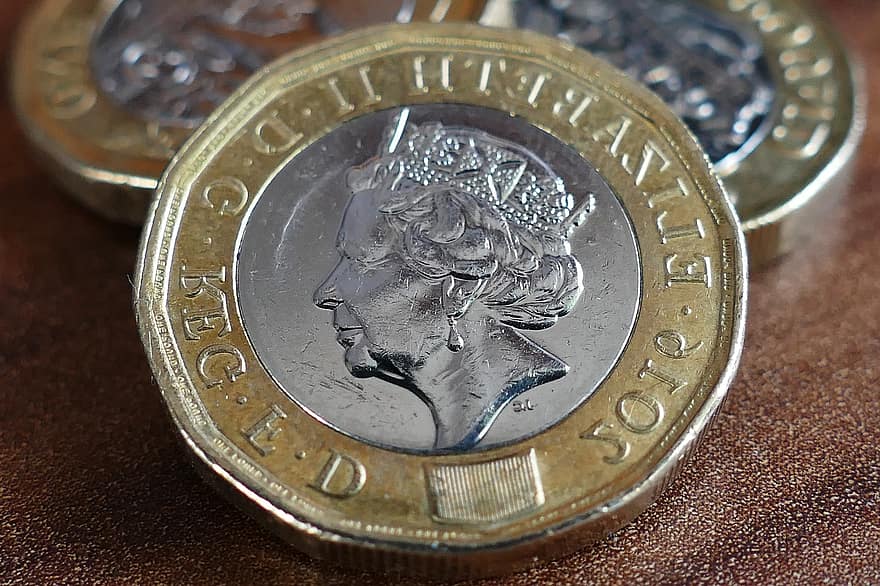
Source: pikist.com
The English one pound note was removed from circulation in November of ’84 and replaced with a sturdier one pound coin (pictured above) by Chancellor Nigel Lawson. The note had circulated the market for over 180 years and featured Queen Elizabeth II.
10. CIA embassy director William Francis Buckley was abducted.
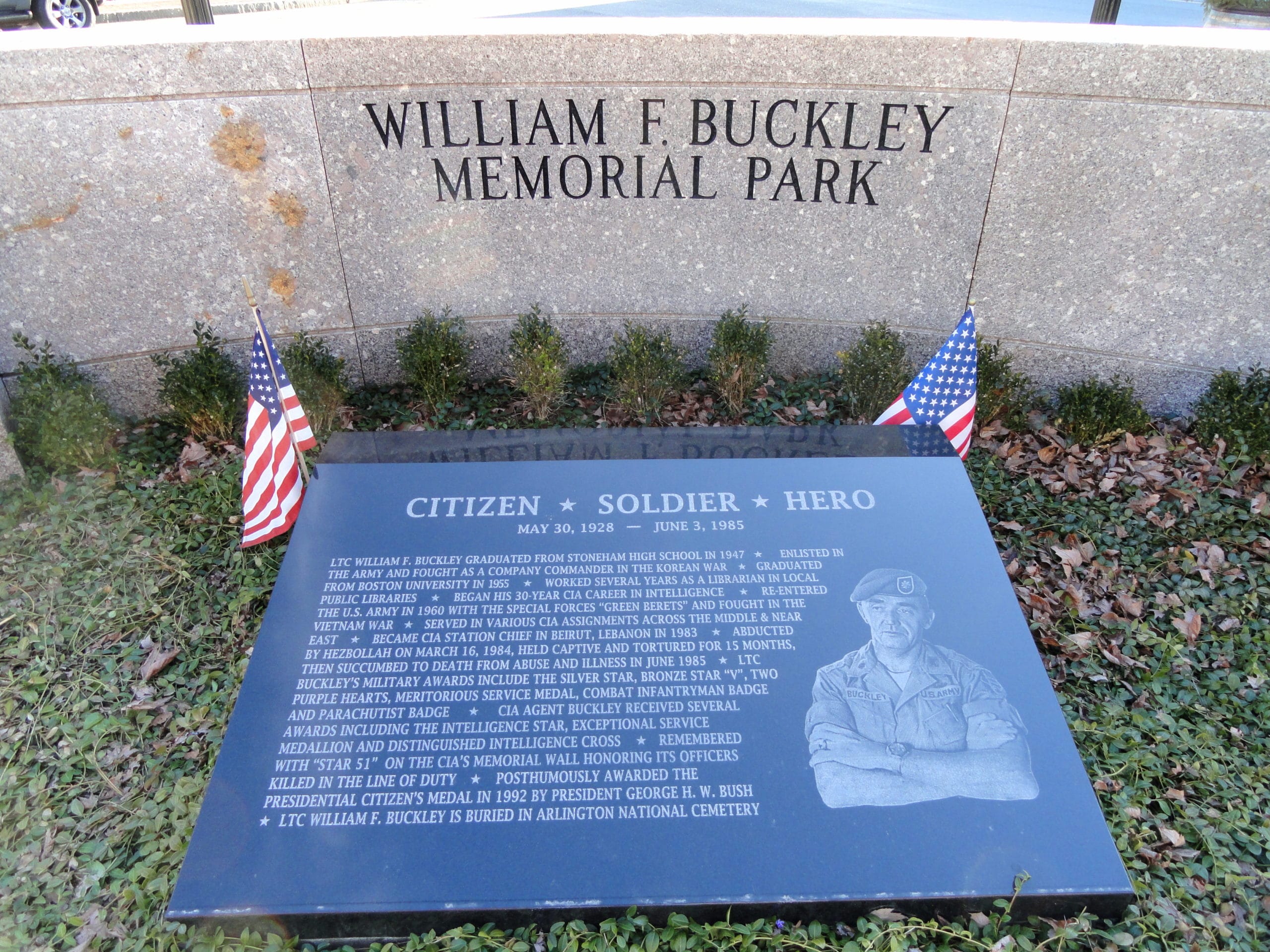
Source: commons.wikimedia.org
On March 16, 1984, this story broke headlines all across the nation. While outside his residence in Beirut, Lebanon, William Francis Buckley was kidnapped by jihadi extremists who believed he could be used in a prisoner exchange. He was subsequently held in captivity and allegedly tortured until he succumbed to his injuries and was returned to the U.S. to be buried a year later.
11. York Minster caught fire.

Source: commons.wikimedia.org
On July 9, York Minster erupted in flames in the early hours of the morning. For hours, York Fire Department fought to contain the flames but eventually had to collapse the south transept in order to save the remaining structure. The fire was caused by a lightning bolt and ended up costing £2.2 million worth of damage.
12. Union Carbide Plant leaked.
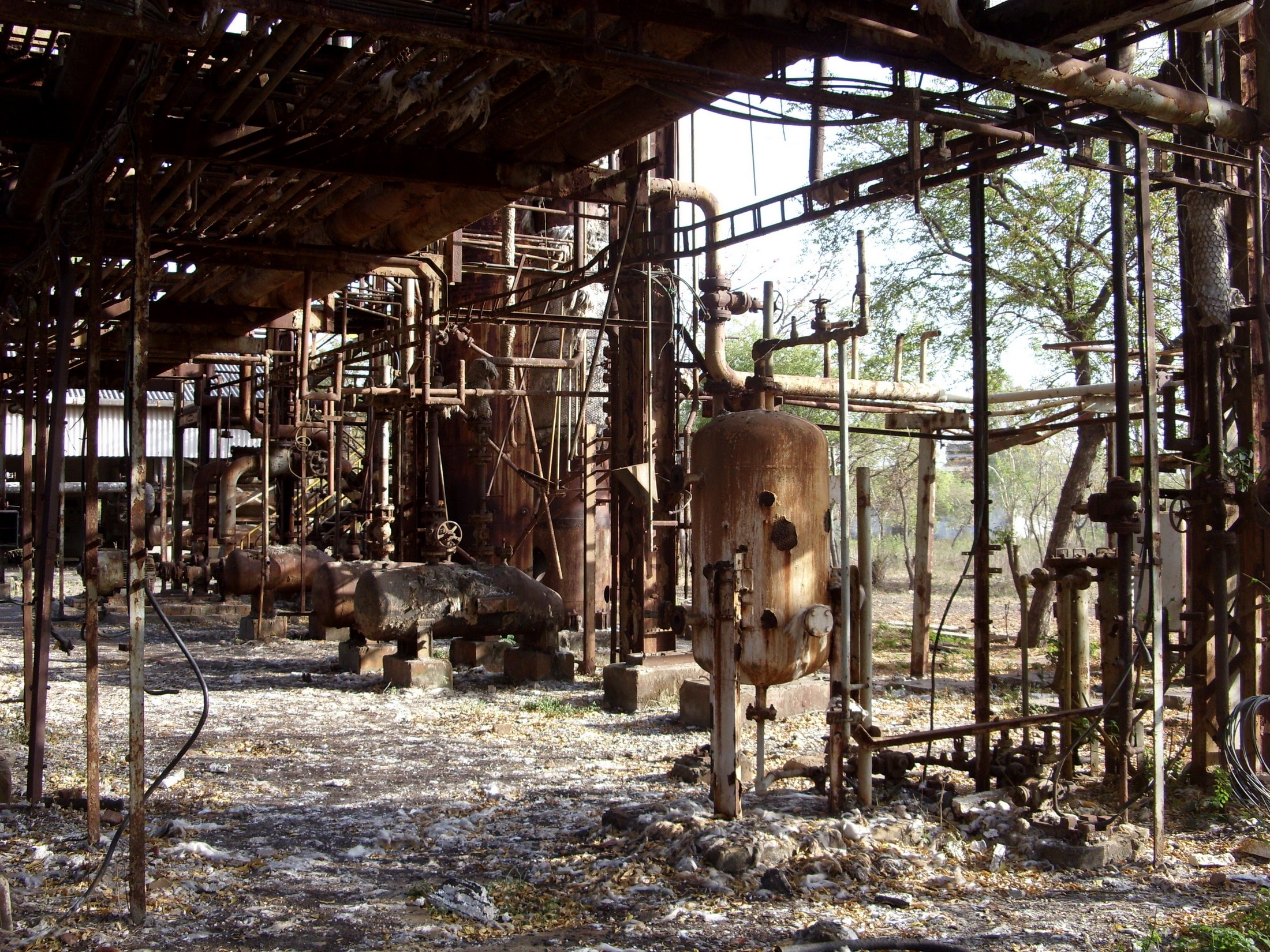
Source: commons.wikimedia.org
In December of 1984, tragedy struck the industrial city of Bhopal, India when the Union Carbide Industrial pesticide plant leaked methyl isocyanate gas (used in the production of insecticide sprays) into the city. Over the course of a day, the gas poisoned over 2,000 people and ultimately impacted over 200,000. With such long-lasting effects, this disaster is still impacting the people of Bhopal today.
13. The longest MLB game in history happened.
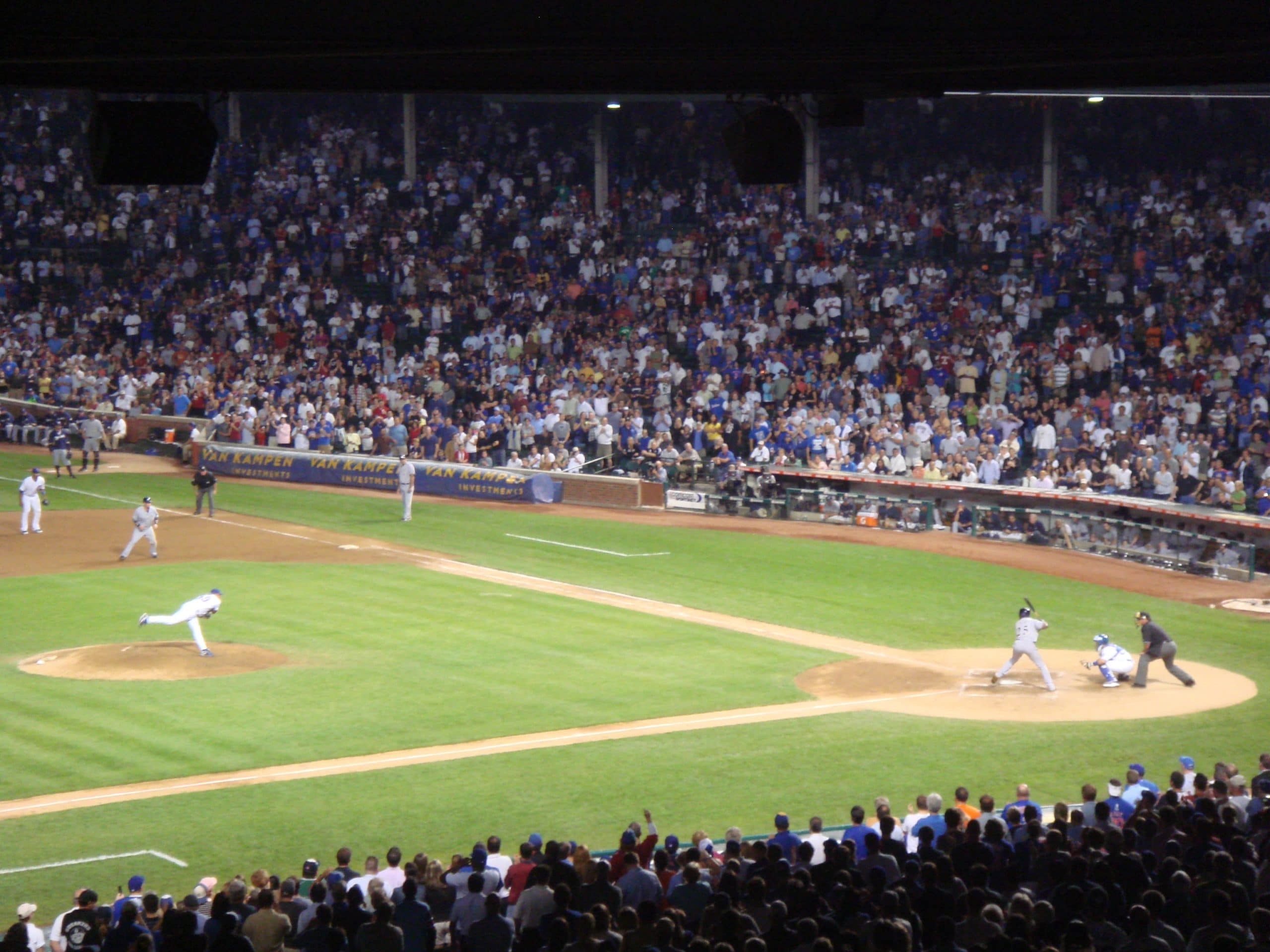
Source: commons.wikimedia.org
On May 8, 1984, the Chicago White Sox went up against the Milwaukee Brewers, running head to head over 25 innings, eight total hours, and two straight days. The only thing that could break the two teams up was a home run by Chicago’s Harold Baines, which secured the win for the White Sox 7-6.
14. A woman ran for vice-president for the first time.
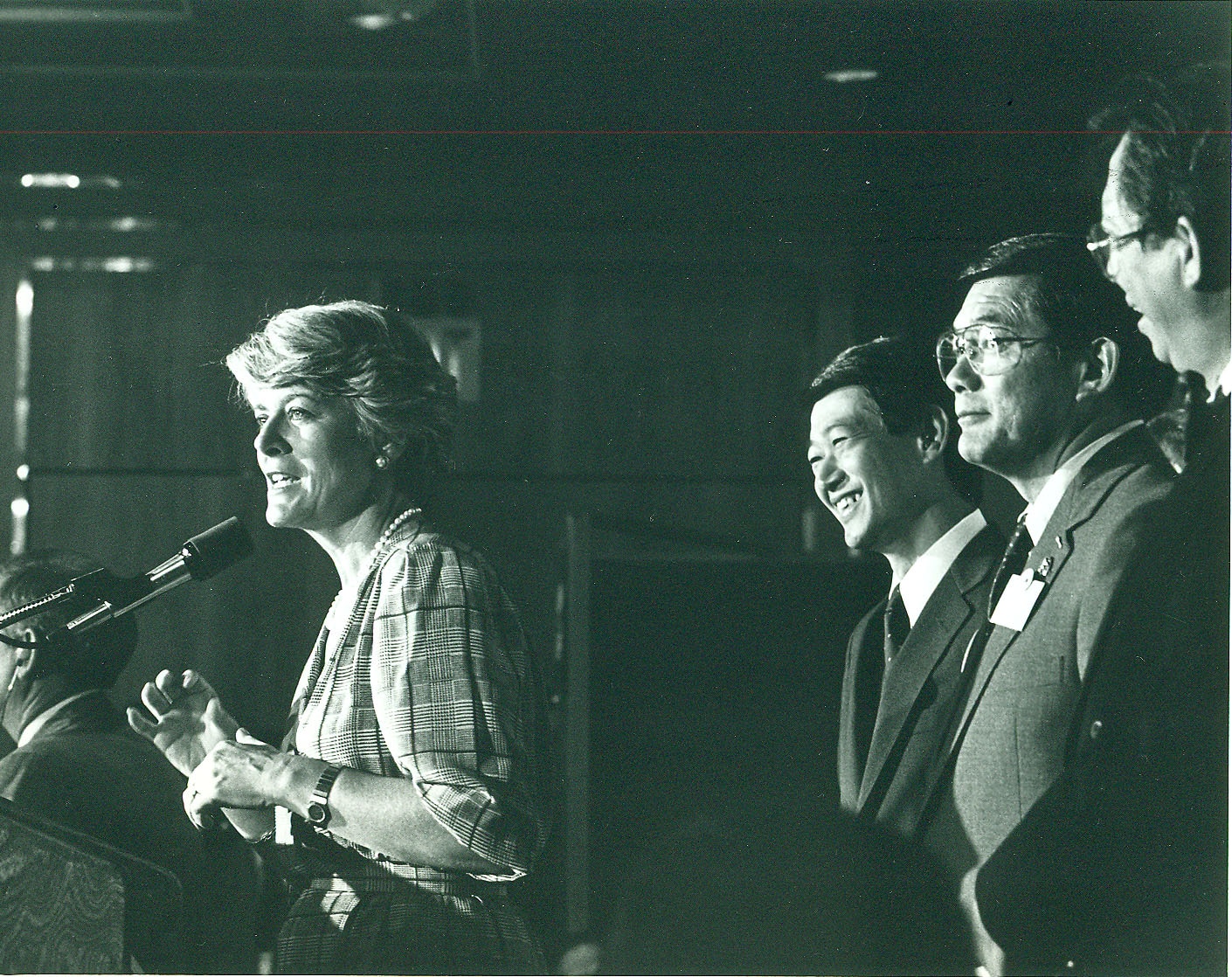
Source: commons.wikimedia.org
Congresswoman Geraldine Ferraro was not the first female politician, but she certainly broke specific barriers that had been in place since America’s founding and continues to serve as an empowering figurehead to this day. In the 1984 election, she became the first female vice-presidential nominee to represent the Democratic party–or any major party, for that matter.
15. The National Cancer Institute successfully identified HIV.

Source: pixnio.com
Since the early 80s, health officials, medical researchers, and specialists everywhere had worked tirelessly in the fight against AIDS, but it wasn’t until 1984 that a true breakthrough was made. Dr. Robert Gallo of the National Cancer Institute and his colleagues identified the retrovirus HTLV-III, or human immunodeficiency virus, which causes AIDS. It is a disease that has caused the deaths of approximately 700,000 people to date.
16. Michael Jackson’s hair caught on fire.
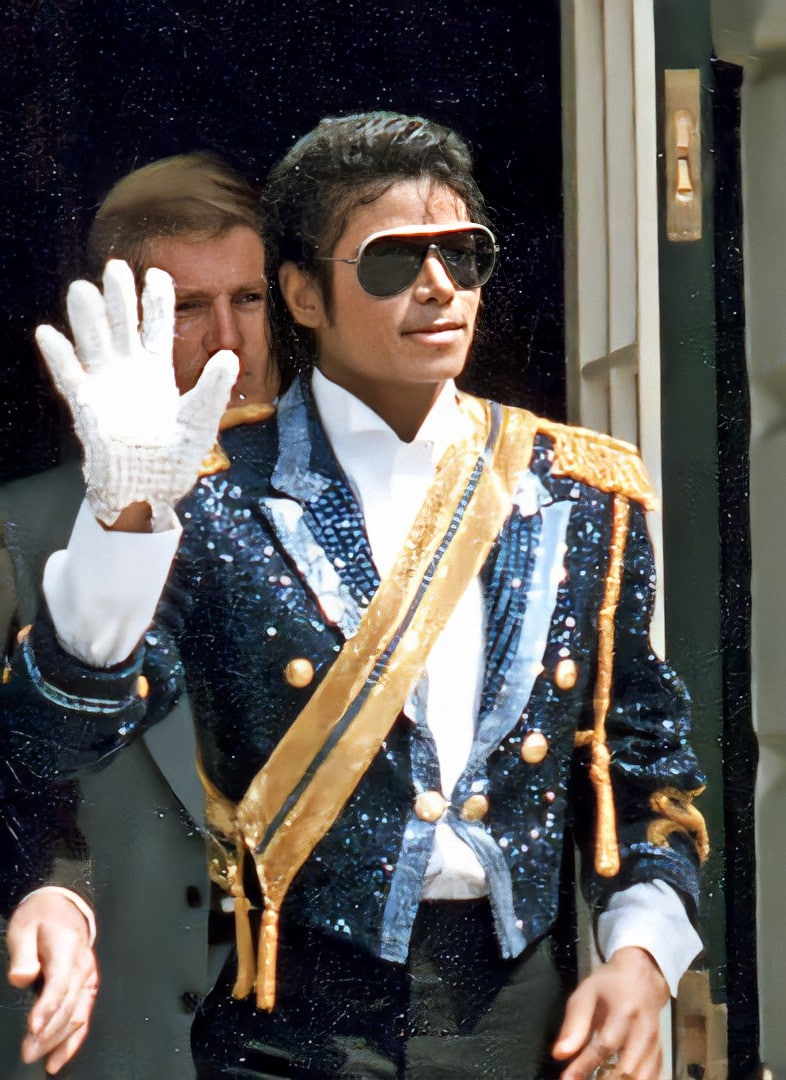
Source: commons.wikimedia.org
In 1984, Jackson’s ill-fated Pepsi-backed live concert went horribly haywire when a major polytechnics malfunction caused a stray spark to catch in his styled hair while he was performing, lighting him on fire. The pop star sustained second and third-degree burns on his face and scalp and retained scars for the rest of his life.
17. Eddie Murphy became a superstar.
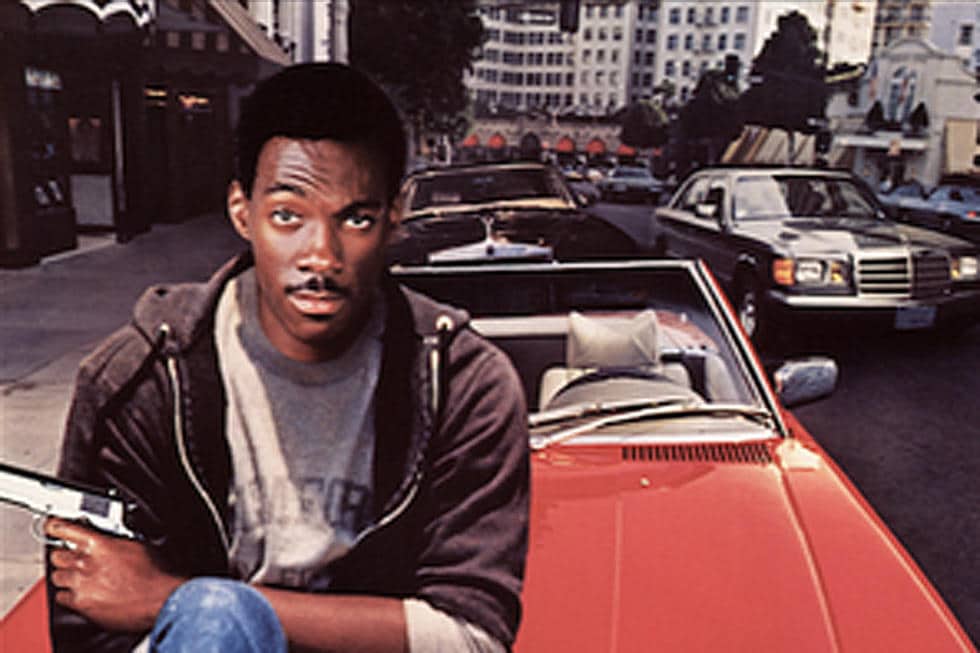
Source: ultimateclassicrock.com
The lovable comedian and actor shot straight to stardom after his work in the Hollywood Blockbuster flick, Beverly Hills Cop (1984). In addition to the fact that Axel Foley was Murphy’s first solo role, the movie ended up grossing over $315 million at the box office! It became the top-grossing film of the year and was deemed a pop-culture phenomenon, loved by generations of Eddie Murphy enthusiasts to this day.
18. Someone rode a hot-air balloon across the Atlantic for the first time.
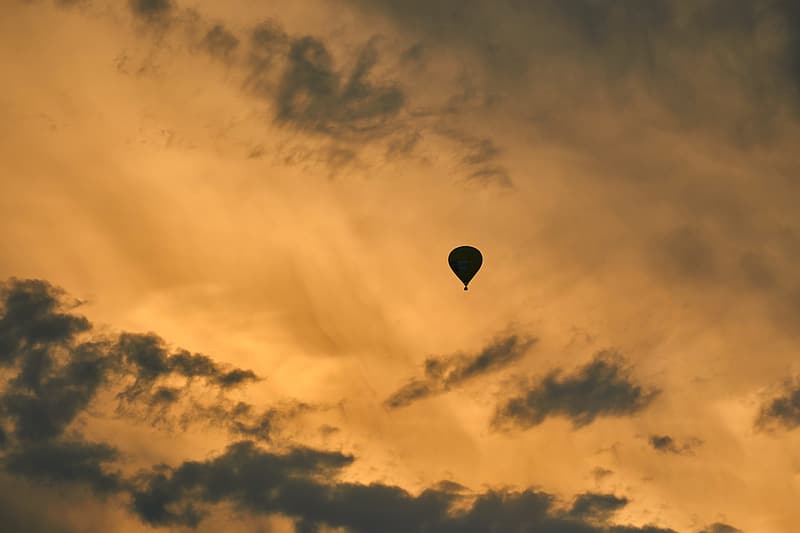
Source: pikrepo.com
In September of 1984, Joseph Kittinger, a retired U.S. Air Force Colonel, set out to make the first-ever transatlantic flight in a hot-air balloon. He departed from Caribou, Maine, and touched ground in Montenotte, Italy 86 hours later. In total, he and Rosie O’Grady’s Balloon of Peace traveled nearly 3,600 miles–pretty impressive!
19. Footloose became a cultural phenomenon!
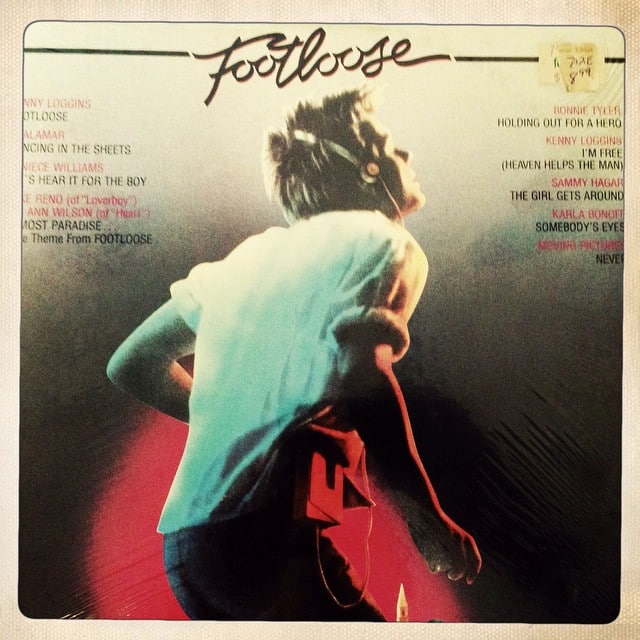
Source: Michael brown
We all know Kevin Bacon by name, and ever since he danced his way across the silver screen back in 1984, we haven’t been able to keep the obsession at bay. These days, he’s usually found playing a more somber character, but to us, he will always be remembered as the dancing, smirking city boy Ren McCormack.
20. Prince released Purple Rain–the song and the movie.
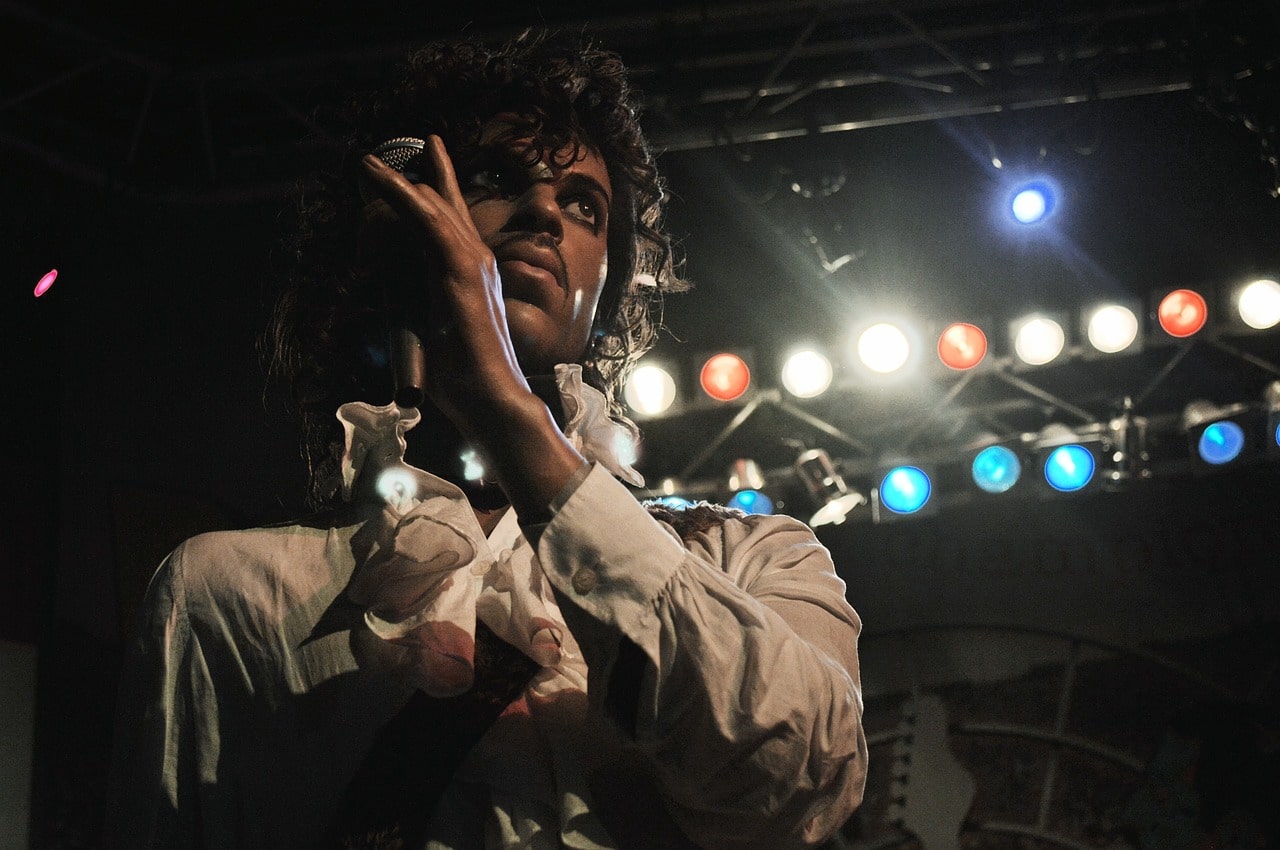
Source: pixabay.com
The summer of 1984 was the summer to be listening to Prince. The rock musical drama film was nothing compared to the release of the song, which hit #2 on Billboard’s Hot 100 in the US for two consecutive weeks and #1 in Belgium and the Netherlands.
21. The space shuttle Discovery made its maiden voyage.
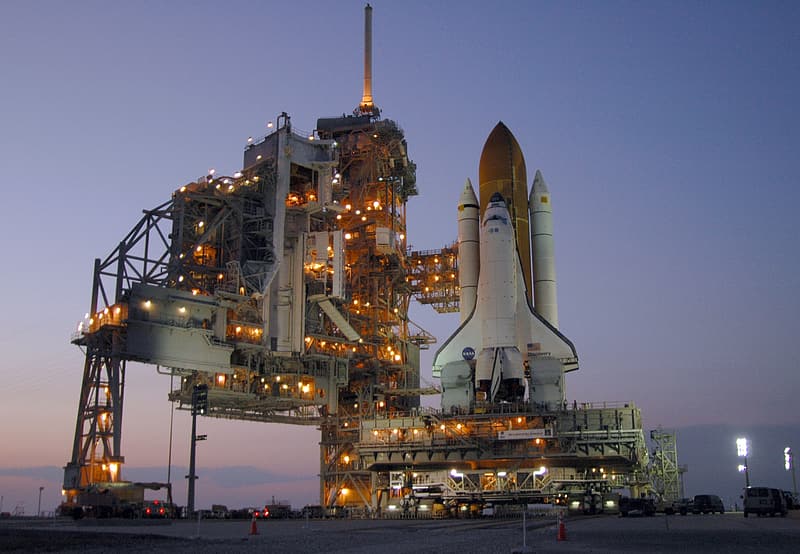
Source: pikrepo.com
The morning of August 30, 1984 had every American looking to the skies for a glimpse of the space shuttle Discovery, which made its first-ever launch out of Kennedy Space Center at 8:42 am EDT. Discovery‘s dauntless crew consisted of five men and one woman, who successfully deployed the SBS-4 satellite, the Syncom satellite, and the Telstar satellite into orbit.
22. Bruce McCandless and Robert L. Stewart made the first-ever untethered spacewalk.
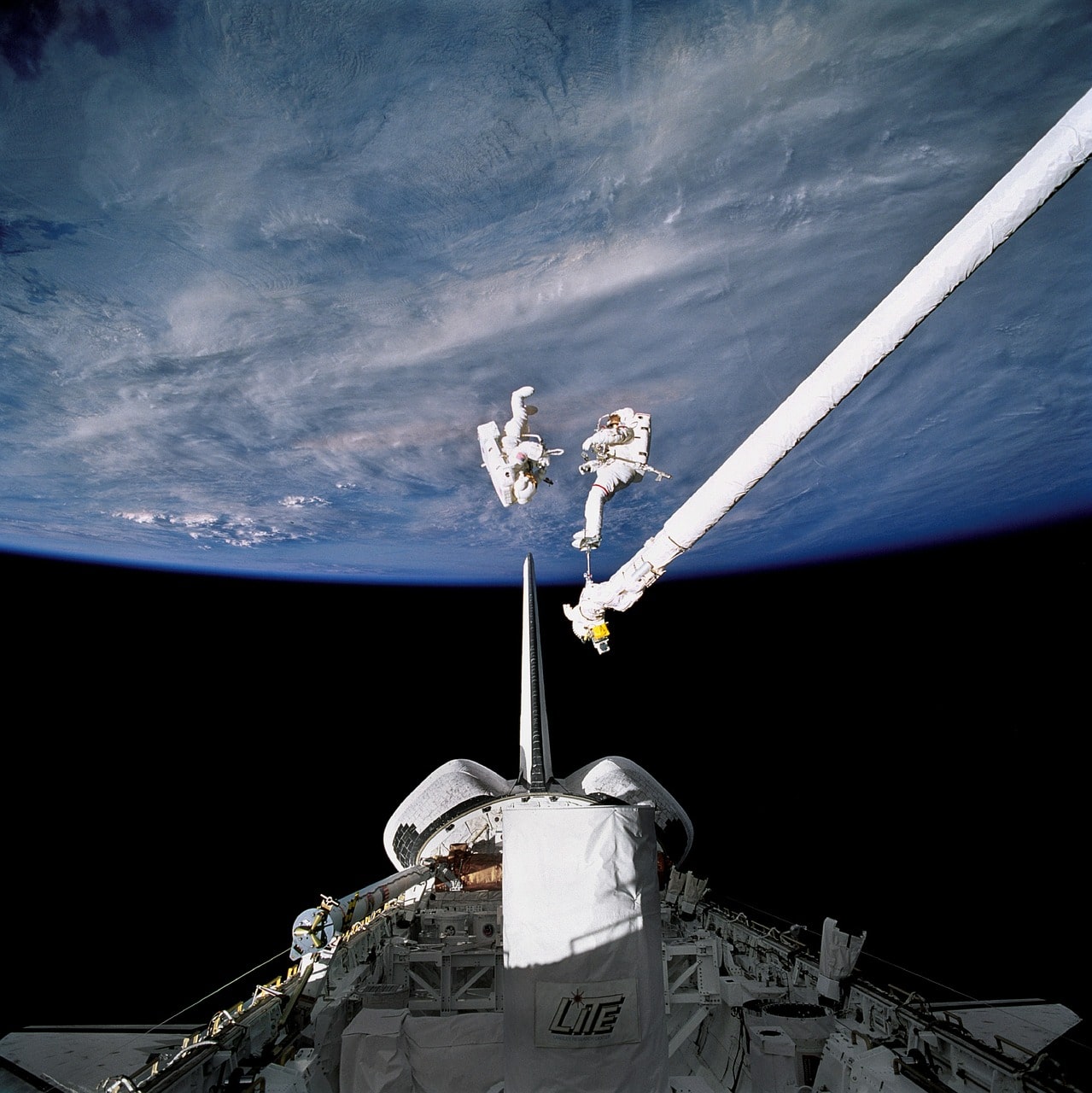
Source: needpix.com
Keeping with the space theme, this is one not-so-small walk for man, and one ginormous spacewalk for mankind! On February 3, 1984, two brave astronauts took the first leap into the great big (and very literal) unknown–no strings attached. Sure, they had jetpacks, but that’s hardly comforting considering the vastness.
23. Reagan won the presidential re-election by a landslide.
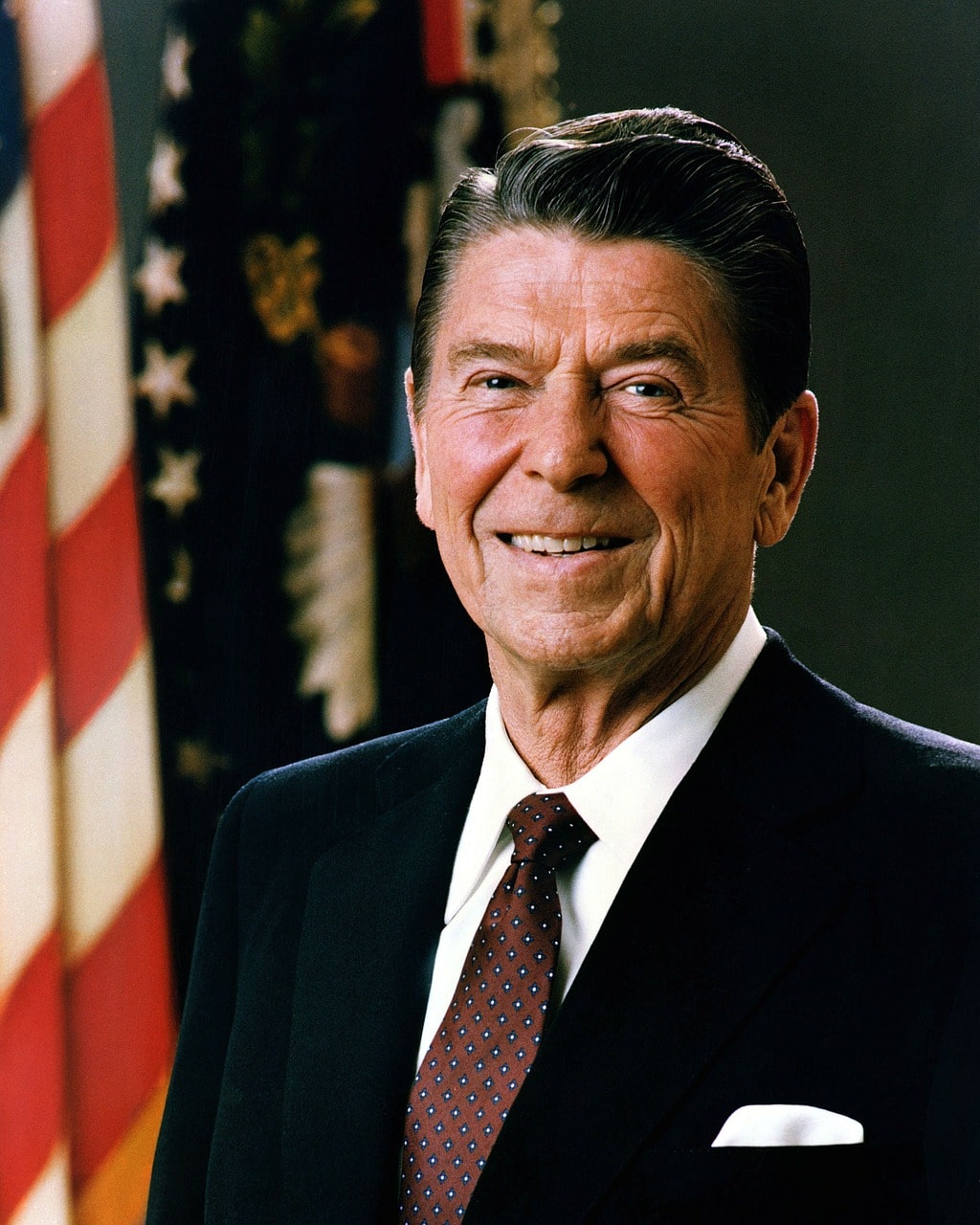
Source: pixabay.com
President Ronald Reagan was re-elected for his second four-year term in office on November 6, 1984, winning 49 of the 50 states. And, as if that wasn’t impressive enough, the president obtained a majority 97.6% of the electoral vote–the largest margin of any candidate in American history and a truly stunning feat.
24. The Soviet Union ditched the L.A. Summer Olympics.
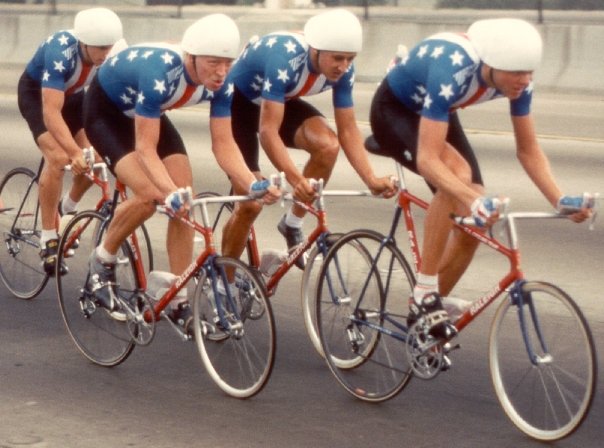
Source: commons.wikimedia.org
So the Cold War was a lot more than psychological warfare, but this move was pretty much just that: psychological. After the U.S. boycotted the 1980 Moscow Summer Olympics, the Soviets saw it only fitting to return the favor, and subsequently opted out of the 1984 games. Blame it on the 102° L.A. traffic.
25. Ghostbusters broke the box office.
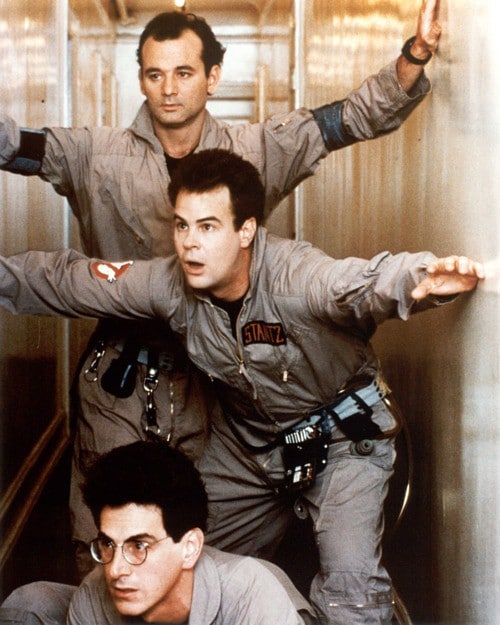
Source: Sean Pultz
This spooktastic classic comedy came out the summer of 1984, shattering Columbia Pictures’ opening weekend record with a baffling $35 million in the box office, making it the highest-grossing comedy of all time (up to 1984, of course). The film was nominated for 2 Oscars and 3 Golden Globes, and its soundtrack–which featured Ray Parker Jr.’s original song “Ghostbusters”–was even in the running for a Grammy.
